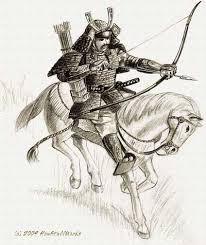
and his lineage. They are still talked about for their innate decency and respect of the enemy and women. There exist old palm-leaf inscriptions on these topics. They are known to many a Kshatriyan families which still believe in the old ways of virtuous Kshatriya living. A trained Kshatriyan -it is said- is never trained till he knows and follows the codes of war.
The Kshatriyan codes of war are stuff of legends and folklore in India. Mahabharatha a Hindu epic also talks about war codes. Conclusive archaeological evidence has not yet been obtained but more or less all sources agree that such codes of war existed and they were followed. Some of the more important codes are listed below.
War should not affect the unarmed - meaning that the civilian population should not be attacked for any reason nor should the disarmed and seriously wounded soldiers or warriors unless it is for killing them as an act of mercy.
Rest should be provided for both sides - meaning that the war should not continue after sunset unless or otherwise it is a guerrilla war.
All foes should be defeated - meaning that even if your kinsman fought against you, you should not hesitate to defeat him.
Raids should not be undertaken unless completely necessary - meaning that a raid should not be undertaken unless the motive is to compensate for past losses or to humiliate the enemy.
Women should not be looked at unless she challenges you - meaning that unless a woman is in your enemy's army as a soldier or warrior you should not attack her. If the woman is the ruler then she can be attacked or asked to surrender only after the whole army is defeated.
A guerrilla war should not be waged unless the objective is victory - meaning that the warriors chosen for a guerrilla war should be the best, able to defeat any large army in the given situation and such an attack should be done only to attain a political goal and not to raid the enemy's supplies.
A traitor should never escape death - meaning that a traitor or defector of ones own army should be guaranteed death.
Kshatriya Dharma
 Kshatriya Dharma is the rules to be followed by a Kshatriyan to do justice to his caste and status. It still exists in the more logical and evolved forms.
Kshatriya Dharma is the rules to be followed by a Kshatriyan to do justice to his caste and status. It still exists in the more logical and evolved forms.It used to be unthinkable for a Kshatriya to marry outside his class. It would be breaking the biggest tradition of his family and would cause disgrace to his whole family and community; this has still not changed for most families even today. There is a very strong emphasis on following the customs and traditions of the class which have evolved over centuries. In addition to these, further traditions specific to particular prominent Kshatriya families have been handed down through the generations. Following these traditions is a matter of such great honour and importance that breaking them has resulted in families splitting up or being excluded permanently from the caste (jāti) even in present times. The joint family system is still widely practised among the Kshatriya families and the family elders have the final say on all important decisions. It was believed that the Kshatriyas were assigned to be protectors of Dharma (duty/justice) and their people. They were sanctioned by God to serve humanity. The noble king is regarded as a Dharma Raja (Just Ruler). People ruled by aryas (honourable men) are led by the Divine light.
Kshtariya Dharma is specifically described in the Mahabharata: "Have you never heard the Kshatriya Dharma: Stand straight and never bow down, for this alone is manliness. Rather break at the knots than bend!"
 These are codes long lost into days wars where women, children and the elderly are constantly put in harms way. Uncouth leaders and people of today think that our time is less barbaric and more civil then the older time but as stated by Srila Prabhupada when a society does not protect women, children, elderly and animals [these being more defenseless then most] it is not a human society but an animal one.
These are codes long lost into days wars where women, children and the elderly are constantly put in harms way. Uncouth leaders and people of today think that our time is less barbaric and more civil then the older time but as stated by Srila Prabhupada when a society does not protect women, children, elderly and animals [these being more defenseless then most] it is not a human society but an animal one.
No comments:
Post a Comment